Expansion Valves
Expansion Valves are mechanical devices used in refrigeration and air conditioning systems to regulate the flow of refrigerant into the evaporator. They maintain a controlled reduction in pressure and temperature of the refrigerant as it passes through, facilitating the phase change from liquid to vapor. This process enables efficient heat absorption from the surrounding environment, crucial for cooling applications. Expansion valves play a critical role in optimizing system performance by ensuring the proper amount of refrigerant is delivered to the evaporator, thereby maintaining desired temperatures and improving energy efficiency.
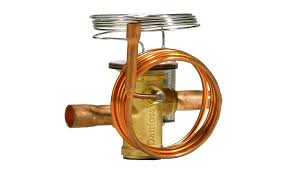
Expansion Valves
Uses of
- Air Conditioning Systems: Used in both residential and commercial HVAC systems to control the cooling capacity and ensure efficient operation.
- Refrigeration Systems: Essential in refrigerators, freezers, and cold storage facilities to maintain desired temperatures for food preservation.
- Heat Pump Systems: Employed in heat pump units to facilitate the transfer of heat between indoor and outdoor environments.
- Chiller Systems: Utilized in chiller units for industrial processes, providing precise control over cooling capacity and temperature.
- Automotive Air Conditioning: Found in automotive HVAC systems to regulate the flow of refrigerant and maintain cabin comfort.
- Process Cooling: Used in various industrial applications where precise temperature control is necessary for manufacturing processes.
- Environmental Control Systems: Used in environmental chambers and climate control systems to create specific temperature and humidity conditions for testing and research purposes.
Expansion Valves
Role for
- Pressure Regulation: Expansion valve control the flow of refrigerant into the evaporator, creating a pressure drop that allows the refrigerant to expand and vaporize.
- Temperature Control: By regulating the flow of refrigerant, expansion valves help maintain the desired temperature within the evaporator, ensuring efficient heat absorption from the surroundings.
- Efficiency Optimization: They contribute to system efficiency by precisely metering the amount of refrigerant entering the evaporator, thereby maximizing the system’s cooling capacity and energy efficiency.
- Prevention of Liquid Floodback: Expansion valves prevent the liquid refrigerant from entering the compressor by ensuring that only vapor enters the compressor, which helps prevent damage and improves compressor reliability.
- System Protection: Expansion valves protect the compressor and other components from excessive pressure and temperature fluctuations by maintaining proper refrigerant flow and system balance.
Other Chiller Spares We Manufacture
Scroll Compressor
A scroll compressor is a type of positive displacement compressor that uses two interleaved spiral-shaped scrolls to compress gas. One scroll is stationary,

Semi-hermetic Compressor
A semi-hermetic compressor is a type of compressor where the motor and compressor are enclosed in a single, sealed housing, but unlike fully hermetic compressors,
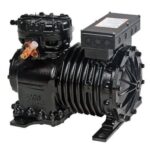
Hermetic Compressor
Hermetic Compressor is a type of compressor widely used in refrigeration and air conditioning systems. It features an airtight housing that encloses both the motor and the compressor,
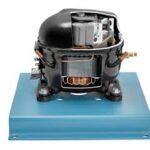
Screw Compressor
Screw Compressor is a type of rotary compressor that uses two intermeshing helical rotors to compress gas or air. As the rotors rotate, they trap and compress the gas
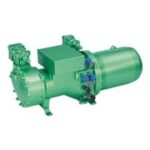
Reciprocating Compressor
A reciprocating compressor is a positive displacement device that compresses gas by using a piston driven by a crankshaft. The piston moves back and forth in a cylinder
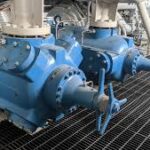
Rotary Compressor
Rotary Compressor is a type of gas compressor that uses a rotating mechanism, such as screws, vanes, or scrolls, to compress gas. The rotating elements trap and compress
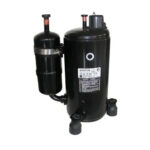
Refrigeration Gases
Refrigeration Gases, also known as refrigerants, are substances used in refrigeration systems to transfer heat from one area to another through a cycle of evaporation and condensation.
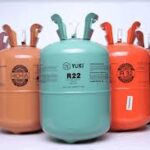
Axil Fan
Axil Fan is a type of mechanical fan commonly used for moving air or gas parallel to the axis of its blades. Unlike centrifugal fans that generate airflow perpendicular to the fan blades
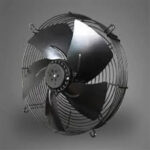
Condenser
Condenser is a key component in refrigeration and air conditioning systems that facilitates the transfer of heat absorbed by the refrigerant to the outside environment.
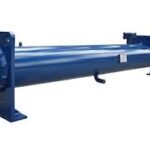
Chiller Pumps
Chiller Pumps, also known as condenser water pumps or circulation pumps, are essential components in chiller systems. Their primary function is to circulate water
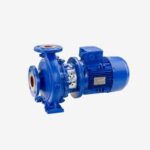
Chiller Control Panel
Chiller Control Panel is a centralized component of a chiller system that oversees and regulates the operation of key components such as compressors, pumps
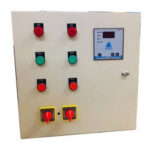
Copper Pipes and Fittings
Copper Pipes and Fittings are commonly used in plumbing and HVAC systems due to their durability, corrosion resistance, and excellent heat transfer properties.

